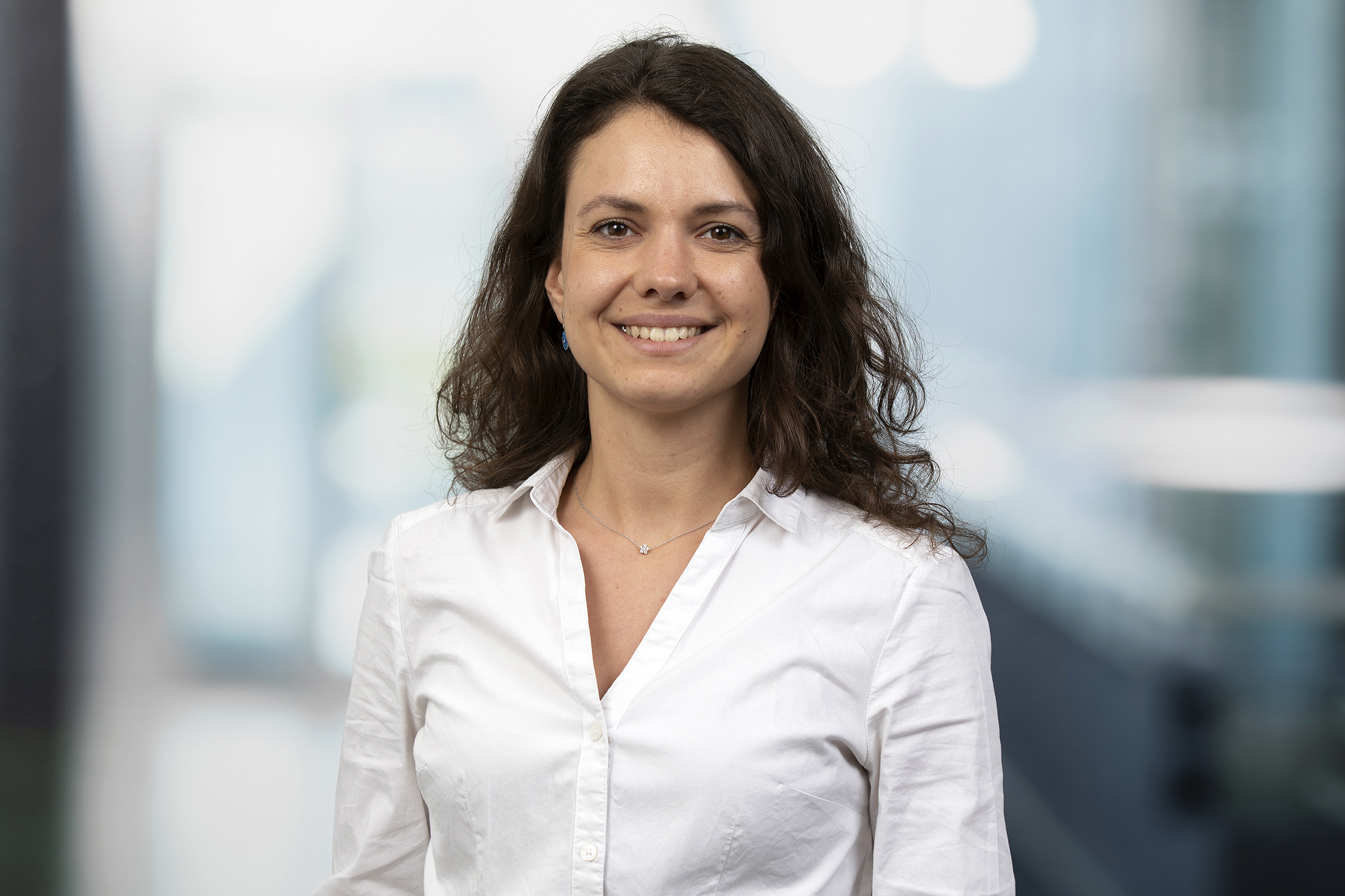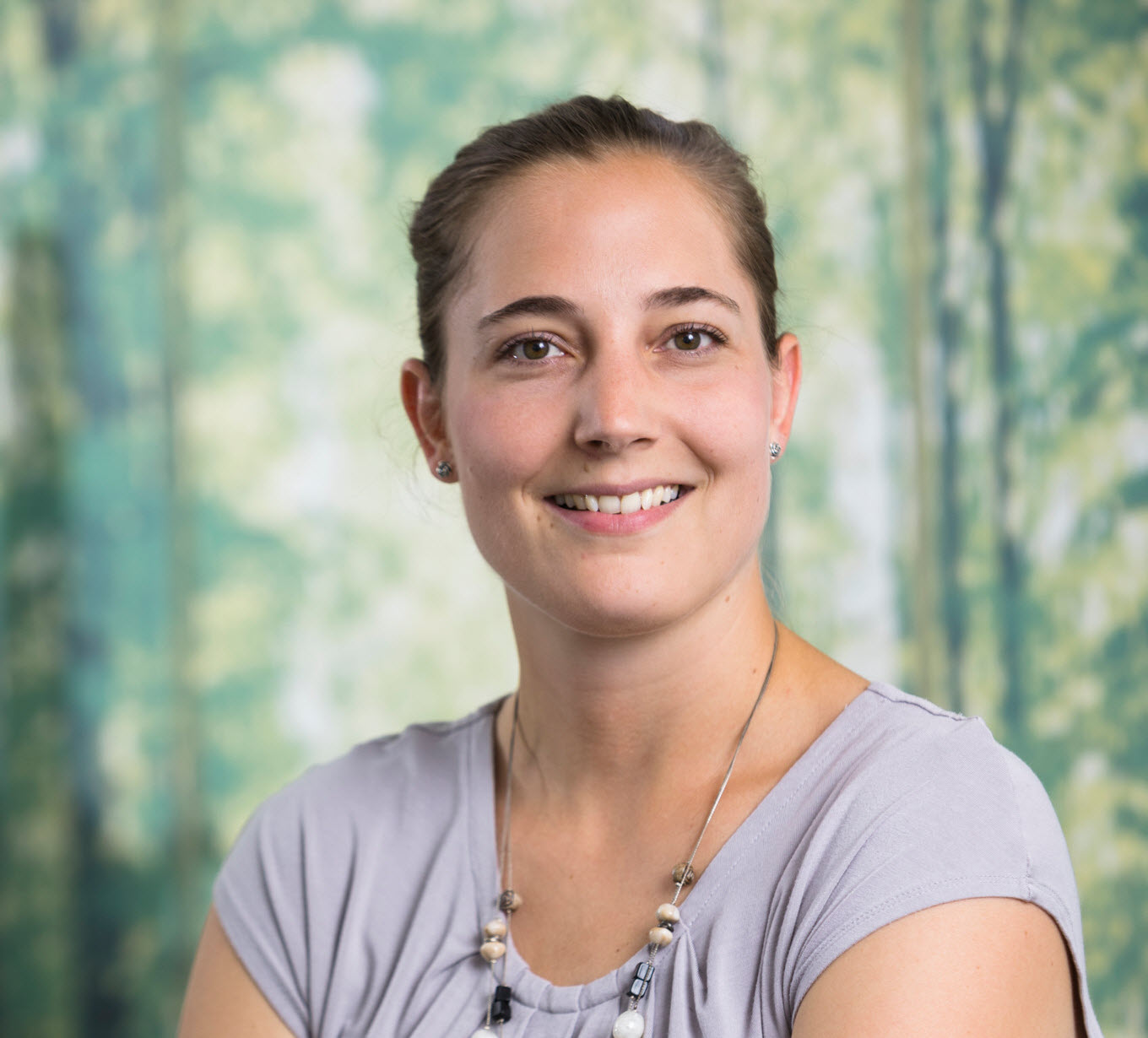Ingrid Jägering has been Chief Financial Officer at STIHL since August 2022 – and patron of the new “Women Network @STIHL” since the beginning of May. She tells “Blick ins Werk” about her experiences as a woman in the world of work, why networks are so important, and what advice she has for young female colleagues.
Ms. Jägering, it has been a year since you became Chief Financial Officer at STIHL. Tell us a bit about yourself. Where are you from? What has shaped you?
INGRID JÄGERING: My roots lie in the rather rural area of Münsterland – I grew up there in an entrepreneurial household: My father was self-employed, my mother took care of accounting. As a result, I came into contact with the topics of business and finance from a very early age.
Was your mother your first female role model?
INGRID JÄGERING: Yes, of course. I always admired my mother for her hard work and dedication. We ran a skilled trade business, but were among the pioneers of the first wave of digitalization thanks to my mother. We very quickly got a computer, and my mother introduced an ERP system in the early 1980s. That might not sound like much, but our company had around 35 employees and made roughly four million euros in revenue, so it was vital to have certain structures, processes, and systems. The division of responsibilities between my parents meant that there were no gender stereotypes at home. Both of them worked, both looked after us four children, and everyone pitched in together to help the business. For me, it was a perfectly natural setup. Today, my sister continues to run the business very successfully.

Did that change when you began your own career?
INGRID JÄGERING: Yes, absolutely. When I started my apprenticeship in 1986, the personnel manager said: “The truth is, Ms. Becker, we were forced to hire you. We had to meet the quota.” Companies were required to have 50 percent men and 50 percent women among their commercial apprentices. It was made clear to me from the start that it was a pity to spend time and energy training women who would then get married, have children, and stay at home. I used this as motivation to show what we women are capable of.
My role models at home, as well as the negative things I’ve experienced, have always spurred me on to make the best out of my situation and position and not to give up. I made a career for myself. I worked for a lot of companies and spent plenty of time abroad. I was always in the professional environments of controlling, performance management (as a business partner), and accounting in manufacturing companies. At some point, my husband and I sat down and talked about whether to start a family.
A life-defining question for many people. What did you decide to do?
INGRID JÄGERING: My husband and I have known each other for a very long time. When we got together, I was 16 and he was 21. Back then, a lot of things just happened and were not really planned or questioned. In the end, every couple has to find their way. My career has always been very important to me as a way of developing myself and my personality. That’s why I would never have stayed at home. My husband worked part-time at first, before later deciding to take care of the household and children full-time. Looking back, I can say that we managed things really well. I think it’s fantastic that our daughter and son have grown up with completely different role models and are now very open-minded.
It must have been difficult at times. Did anyone ever question this arrangement?
INGRID JÄGERING: People have made comments of course, but that almost always happens everywhere. Thankfully, both his and my parents supported us the whole time, and we were always agreed that we would do it this way. A decision like that always depends on individual circumstances, though. The options available today, such as parental leave and part-time arrangements for both parents, do not inevitably mean that one person has to work full-time and the other one must stay at home. The important thing is not to be deterred and to go your own way.

You have spent a lot of time living and working abroad. What was that like?
INGRID JÄGERING: When we went to Hong Kong, Bernd was often the only man among all the managers’ partners. That wasn’t always easy for him or for us as a couple. By contrast, we had a completely different experience in the U.S. No one there questioned our arrangement — it’s a country where anyone can live their life the way they want to. People do not ask as many questions, nor do they define themselves so much on the basis of their role or job.
That means in other settings you were often the only woman. How did you experience that?
INGRID JÄGERING: I would describe myself as very grounded and calm. Those traits have helped me in many situations. However, I agree with many women in management positions who say that we often walk a fine line. That’s why in professional environments I don’t talk so often about family, feminism, or my needs. My focus has always been on doing a good job, networking, and winning people over with my work. I hope that it will be easier for future generations, and that it will be more of a matter of course. For that to happen, though, we need to create the right structures. I see it as my responsibility to point out the differences in perspectives and to remind people that any woman is free to make decisions about both their career and their family without anyone else giving their two cents about it.
That makes you the ideal patron of the new women’s network at STIHL. At the first meeting, you actively offered to be a mentor. Have any female colleagues responded to you?
INGRID JÄGERING: That meeting was a success: A number of women from various areas and hierarchy levels have contacted me. They all want to exchange ideas so that they are better able to shape their careers. I find being a personal mentor very exciting, because it puts me in touch with a new generation and allows me to learn new things from them too. The first meeting of the new women’s network got me really excited too! There was so much energy and openness, and we had great conversations afterwards. It shows that the organizers have touched a nerve. However, the real work is only just starting. We need to move forward by coming up with new ideas within the group. That way, we can hopefully get results.
STIHL is not your first career stop. Have you established or supported women’s networks in the past?
INGRID JÄGERING: Yes, for sure. I was already thinking about inviting one of my successful women’s networks to join us in Waiblingen next year. One of the networks of which I am a founding member is Women in Foreign Trade. We established the group with the aim of encouraging more women to enter the male-dominated export industry. WIFT is a network of experts that is open to any players in the area of foreign trade and export finance, be they exporters, banks, export credit insurers, ministries, associations, or others. Our mission is to act as a center of excellence for foreign trade and to increase the proportion of qualified women in leadership and decision-making positions through networking and targeted measures. Our women’s network at STIHL would definitely benefit from talking to WIFT. I am also part of an older network in which we provide each other with further training and help members gain and maintain the skills needed for a supervisory board position. The journey to holding such a position is long and requires hard work, ambition, and tenacity, as well as good connections. On top of that, you need to be willing to invest in networks, even if you don’t know for sure whether you will get anything out of them.
Do you only support women, or do men contact you as well?
INGRID JÄGERING: Of course! I also support quite a few young men. They all grew up in Germany, graduated from high school here, are completely integrated, but have Arab names. And that is the only reason why they are often denied the opportunity to do their dream job — just because their name is Mohammed, Ahmed, or Kalid. I care deeply about nurturing their talents and helping them get equal opportunities. It is important to me to accept people for who they are.
What advice would you give young women – and men – who are about to start their career or want to try something new?
INGRID JÄGERING: Be authentic. Fortunately, authenticity is now seen as a strength and a charismatic trait. People quickly notice if someone is trying to fool them. What helps is to have a healthy sense of self-confidence and an assured manner. When you enter a room, don’t just sit quietly somewhere. Make yourselves visible – you’ve earned it.
Those are good final words. Thank you for talking to us, Ms. Jägering.

About Ingrid Jägering:
Ingrid Jägering has been a member of STIHL AG’s Executive Board since May 1, 2022. She became Chief Financial Officer on August 1, 2022. Her area of responsibility includes Finance, Controlling, Treasury, and the management of equity interests.
Ingrid Jägering was born in Südlohn in 1966. She is married with two children. She started her career in 1986 with industrial management training at Siemens AG in Bocholt. Between then and 2012, she was continuously employed by the German conglomerate and several of its subsidiaries. She was in the top management of its companies for more than ten years, most recently as a member of the Management Board and Chief Financial Officer of the Wind Power division at Siemens Wind Power A/S in Denmark. Following that, she served as Managing Director and CFO of various business units at MAN DIESEL & TURBO SE in Augsburg and Oberhausen, before being appointed CFO, Managing Director and Labor Director at OSRAM Opto Semiconductors GmbH in Regensburg in April 2016. From August 2019 to the end of March 2022, she was the CFO and Labor Director of the publicly listed Leoni AG.


